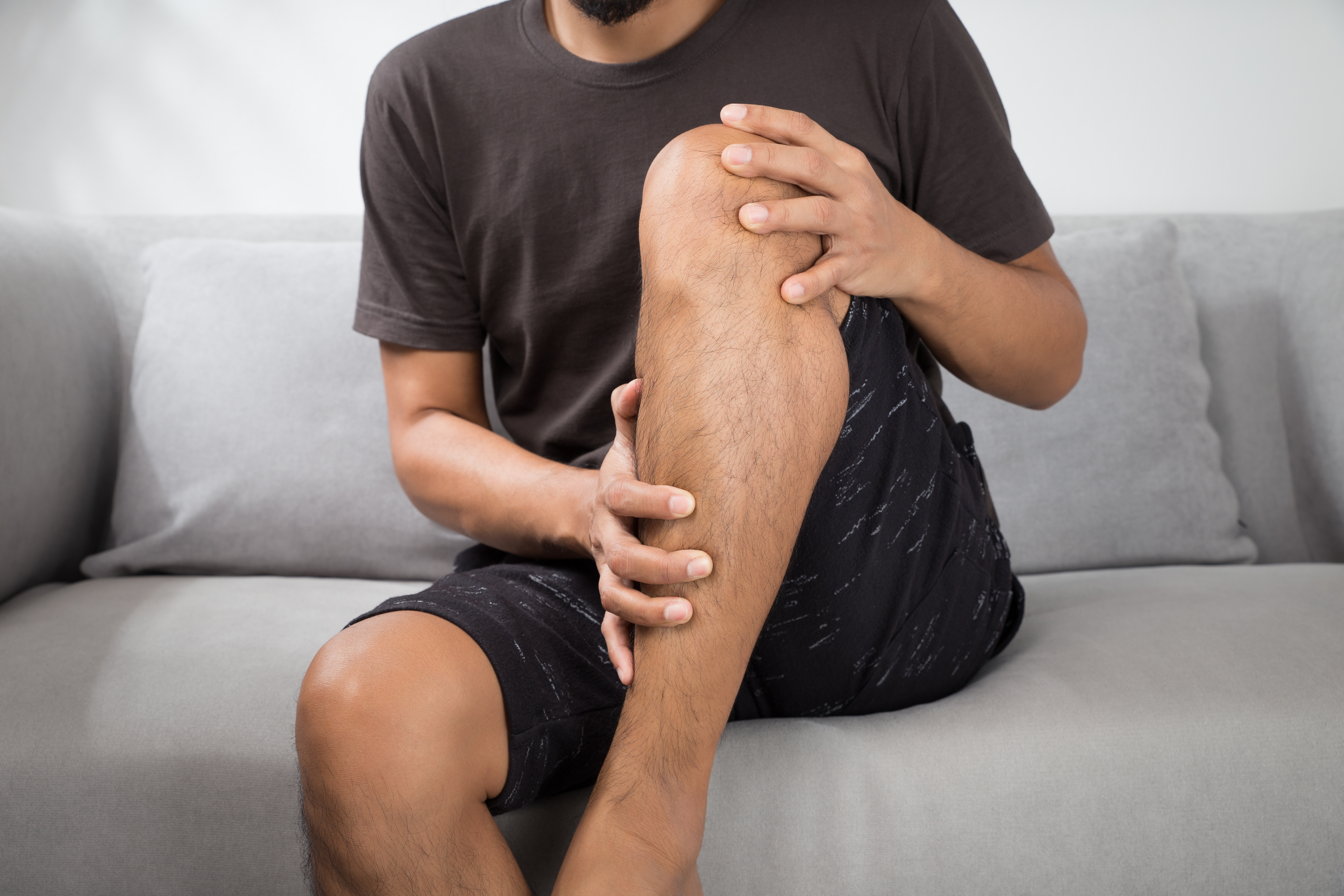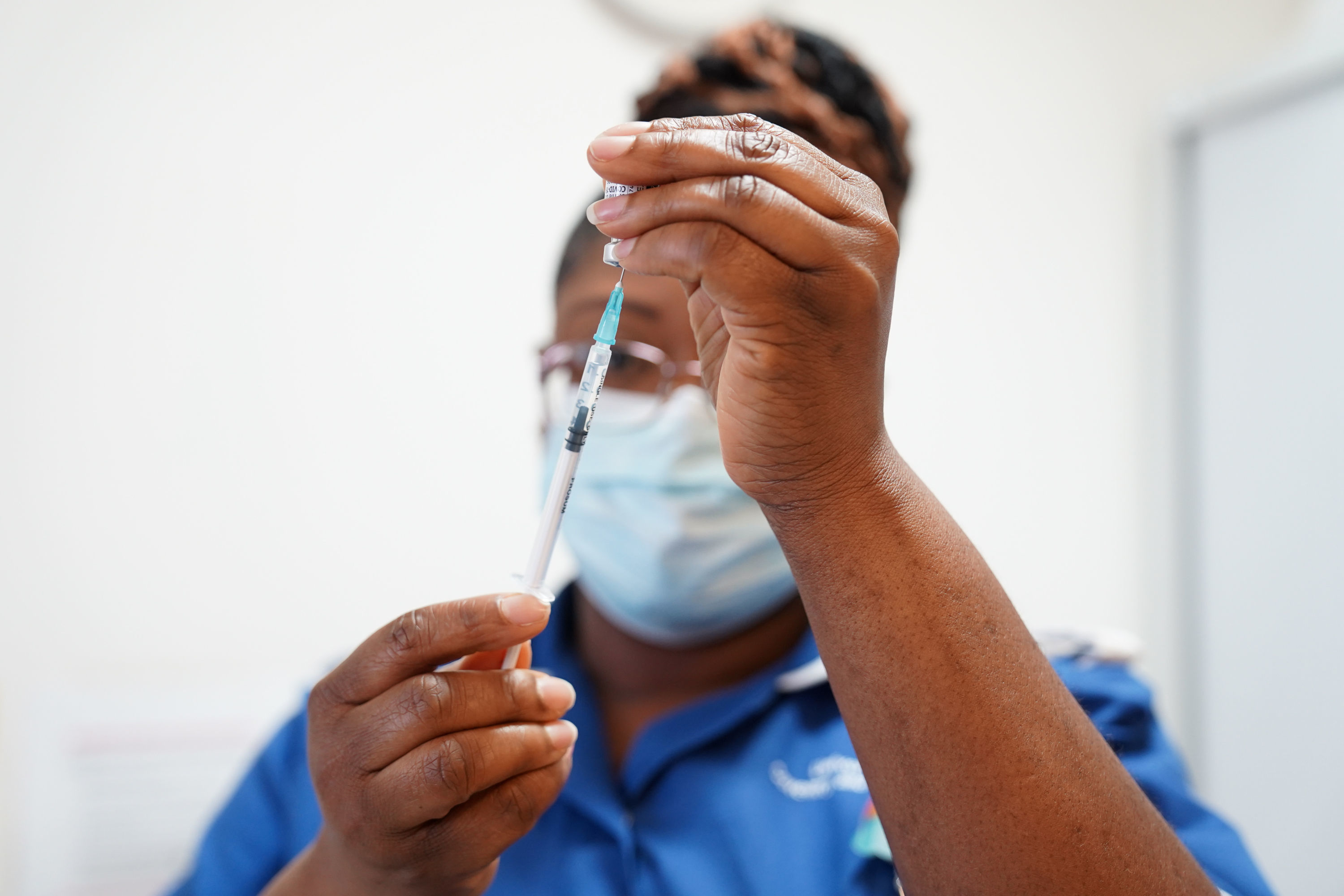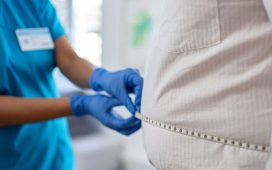WE give our kids yoghurt and cheese to help them “grow strong”, but forget about our own bone health as we age.
Adults’ bones constantly remodel themselves, so as old bone tissue is removed, new bone forms.
From 40, however, less is replaced and from our fifties bones get significantly weaker – this is especially so for women as their hormones change during menopause.
Some people lose bone tissue faster than normal or are at risk of osteoporosis.
This means they are at greater risk of a fracture.
Exercise maintains strength in the bones, just like it does in the muscles.
It’s never too late to start exercising, and if you’re middle-aged, I implore you to get into the habit now.
As we age we might become more immobile or have health conditions that get in the way of exercise.
But any weight-bearing exercise, even walking or dancing, maintains bone strength.
So keep moving as much as you can.
Pay attention to calcium in your diet, from dairy and dark leafy greens.
Vitamin D is important too, and found in red meat, oily fish and egg yolks – though a daily supplement is advised as our main source is sunlight.
Sardines are also a great source of both calcium and vitamin D.
Here’s a selection of what readers have asked this week.
Mouth so dry I can’t swallow
Q) I HAVE had a problem with my throat for quite a while.
My throat is so dry that I struggle to swallow because there is no saliva in my mouth.
It mostly happens when I awake in the morning and occasionally during the day.
Can you tell me why and what I can do about it?
I suffer from hypertension and type 2 diabetes.
A) Do you breathe through your mouth at night due to a blocked nose or snoring, for example?
If you snore and have daytime sleepiness, please read about sleep apnoea on the NHS website, and if you think you have it inform your GP.
Let’s consider other potential causes; Dry mouth (xerostomia) can be a side effect of many medications, especially those that treat hypertension and diabetes.
Ramipril in particular is known to cause dry mouth.
Tinkering with your medications on your own is not a good idea!
Dr Zoe Williamson
Additionally, people with diabetes are more prone to dry mouth.
When the blood sugar is too high, you can become dehydrated, decreasing saliva production.
Similarly, low blood sugar triggers a stress response that can also reduce saliva production.
Managing diabetes and hypertension is very important.
But tinkering with your medications on your own is not a good idea!
Discuss adjusting your medications or exploring alternatives with your GP.
In the meantime, stay hydrated by drinking plenty of water, eating fruits and vegetables and limiting alcohol and caffeine.
You can also try sugar-free hard sweets or gum to help boost saliva production.
Persistent dry mouth can increase the risk of dental issues and affect quality of life so it is important to act on it.
Q) I HAVE been suffering from upper tummy pain under my rib cage for three years.
It is worse in the morning, sometimes after I eat in the evening.
I’ve seen my GP several times and had two scans.
So far my bloods are normal.
But this pain is alarming, especially because I lost one of my sisters to ovarian cancer.
My GP is insisting on putting a camera down through the mouth but it is very scary for me to go through this procedure.
Is there another way they can find out what is wrong with me? I am in my late 60s.
A) It is reassuring that your blood tests have been normal, but further investigations are indeed essential to identify the under- lying cause of your pain.
The symptoms you describe are quite suggestive of gastrointestinal disease, such as inflammation to the lining of the stomach, hiatus hernia, or a stomach ulcer.
The fact that it has been going on for three years lowers the suspicion of gastrointestinal cancer, but doesn’t rule it out entirely.
An endoscopy, which is the camera test you mention, would allow the medical team to actually look at the food pipe (oesophagus), stomach and the first part of your small intestine.
The fact that it has been going on for three years lowers the suspicion of gastrointestinal cancer, but doesn’t rule it out entirely.
Dr Zoe Williamson
It is considered the best test for looking at these parts of the body, especially because it allows for biopsies to be taken if necessary.
My advice is to have a discussion with your GP about what your specific fears are, as they may be able to reassure you.
You are usually offered the option of having a numbing throat spray and sedation, to make you drowsy during the procedure.
The endoscopy would be carried out by a trained specialist doctor or nurse and would only take approximately 15 minutes.
If that still sounds too scary then you could ask to explore if an alternative test is available at your local hospital.
Alternatives to upper endoscopy may include CT or MRI scans, barium swallow or capsule endoscopies.
Are hot legs linked to my condition?
Q) IN July 2022 I was diagnosed with Parkinson’s disease and prescribed co-careldopa.
The dosage increased when, a year later, I began getting hot legs and feet at night.
In December 2023 I was given transdermal patches but the issue has continued to worsen.
The hospital said they could find no connection between my symptoms and Parkinson’s.
My GP has suggested it could be a circulation problem and prescribed gabapentin.
He said it would help me sleep better but, if anything, it’s getting worse.
Do you have any suggestions for what could be wrong?
A) I’m not a specialist in this area, but experiencing hot, achy legs and feet is not a typical symptom of Parkinson’s or a side effect of co-careldopa (levodopa/carbidopa).
Medications like co-careldopa can cause sleep disturbances or indeed exacerbate existing sensory symptoms.
Your hot, achy legs and feet could be related to other factors, such as vascular issues, musculoskeletal conditions or neuropathic pain (ie, sharp, shooting, or burning sensations due to nerve damage).
When nerves become overactive, they can send out too many pain signals to the brain, leading to discomfort or pain.
Gabapentin works by calming down these over-excited nerves and is therefore sometimes an effective treatment for neuropathic pain.
It can however cause dizziness, drowsiness, or fatigue – particularly when you first start the medication.
Given your complex medical history, it is a good idea to speak to your doctor again to investigate the underlying cause(s) further.
If there is concern about poor circulation to the legs then a Doppler ultrasound can assess this further, as it measures the blood flow through your blood vessels.
If you are still having no joy then it may be worth asking for an appointment with the specialist who looks after your Parkinson’s disease.
Book a Covid booster
THE NHS is calling people to get a spring Covid booster jab this week.
Top-ups will be offered at pharmacies and walk-in centres until June 30.
Steve Russell, of NHS England, said: “Covid-19 can still be very dangerous for older people and those with a weakened immune system.
“Over time, immunity – either from the virus or from a previous vaccination – can fade.
“So it is vital that those who are at higher risk top up their protection.”
The Pfizer and Moderna jabs have updated to protect against more recent Covid strains.
Dr Zoe Williamson
Those who can get a booster include those aged 75 and over, people with a weaker immune system, including children as young as six months, and those who live in a care home for the elderly.
The Pfizer and Moderna jabs have updated to protect against more recent Covid strains.
The virus is still circulating.
Covid positivity increased from 3.4 per cent to 4.1 cent in the week up to April 7.
The NHS will send a text, email, letter or notification in the NHS App to those eligible to get the booster.
But you don’t need to wait.
You can book a Covid jab by calling 119, using the NHS App, the NHS website (nhs.uk/nhs-services/covid-19-services) or by walking into some vaccination centres.
TIP OF THE WEEK
MOST of us sit all day, especially those in office jobs.
So make sure to stretch before bed – this can help with pain-free sleep as well as posture.
Do whatever feels good – or follow a stretch guide on YouTube.
Help with Parkinson’s
STOOL transplants could reduce symptoms of Parkinson’s disease, an ongoing study has shown.
People with early stages of the condition had what is called a faecal microbiota transplant through a health donor while a control group were given a placebo of their own faecal matter.
All participants received the stool through a tube that was inserted through the nose, down into the small intestine.
FMT transfers the healthy gut bacteria of one person to another to try and improve the disease but is not yet widely used.
Researchers in Belgium found “motor symptoms”, such as balance problems, stiffness, and the characteristic tremor, improved in the FMT group.
Their motor score improved by 5.8 points after 12 months, compared with an improvement of 2.7 points in the placebo group.
Stool transplants could reduce symptoms of Parkinson’s disease, an ongoing study has shown.
Dr Zoe Williamson
However, increased fatigue was seen as a side effect of FMT for unknown reasons.
The placebo effect was also strong; There is evidence that the more invasive the placebo treatment is, the more a patient experiences the placebo effect.
Dr Arnout Bruggeman said: “Our results are encouraging.
“After 12 months, participants who received the healthy donor stool transplant showed a significant improvement.”













